Project Spartan: Microsoft Reveals More Details About Its New Browser, And Internet Explorer's Future

Microsoft's Internet Explorer was a dominant browser for a long time, ever since Microsoft added it to its Windows operating system as free software to compete against Netscape.
However, once the browser reached monopoly status, Microsoft didn't upgrade it as often as it should have, which gave companies such as Mozilla and Google the opportunity to come and steal market share. Depending on which statistics company you believe, Internet Explorer now has anywhere from 28 to 50 percent market share. Even the U.S. federal government (not exactly known for being the most technologically forward entity) puts IE's market share at around 28 percent and makes Chrome the leader with almost 35 percent.
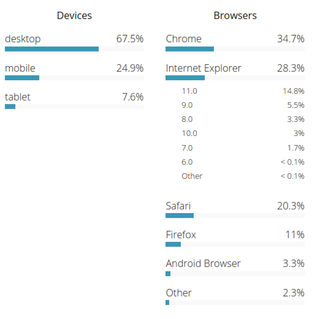
The Internet Explorer brand has also gathered plenty of negative baggage over the last decade, as it represented a browser that has fallen behind the competition. The truth is that even with more modern versions of IE, such as IE9, IE10 and IE11, Microsoft's browser has still remained behind the competition in terms of supporting the latest HTML5 specifications.
Microsoft now wants to start from scratch with "Project Spartan," a new browser with a new rendering engine called EdgeHTML, which is a clean fork from the old Trident engine. Microsoft intends to use this setup for IE11 to remain compatible with older enterprise web apps, as well as try to push them towards the more modern future. As such, both the IE11 and Project Spartan will be available in Windows 10.
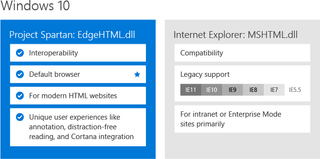
There is a worry that with IE11 remaining supported in Windows 7, 8, 8.1 and Windows 10, it could become the next "IE6." This is why Microsoft should set a clear end of life timeline for IE11 across all of the supported operating systems. However, this may not be possible, as IE11's future is completely tied to the future of Windows 7.
If Windows 7 remains used by a large portion of the market until 2020, then so will IE11, because Microsoft isn't making Project Spartan available for Windows 7. The company will continue to update Internet Explorer 11 for the life of the supported operating systems (including Windows 10) for compatibility purposes, but it's unlikely IE11 will receive any of the new modern features that Project Spartan will get.
Right now, Microsoft's only transition strategy for the browsers seems to be that of getting Windows 7 users to upgrade for free to Windows 10. If they do that, it solves two problems for Microsoft at the same time: not having Windows 7 turn into Windows XP, and not having IE11 turn into IE6. This strategy will depend entirely on how fast people adopt Windows 10, though.
Stay on the Cutting Edge
Join the experts who read Tom's Hardware for the inside track on enthusiast PC tech news — and have for over 25 years. We'll send breaking news and in-depth reviews of CPUs, GPUs, AI, maker hardware and more straight to your inbox.
Microsoft also said that Project Spartan will get regular updates, along with other Windows 10 updates. This means that the new browser could also be tied to the operating system, instead of being independent of it as Chrome or Firefox are.
Chrome has the same features on Windows 7, Windows 8 or 8.1, and it should have the same features on Windows 10. It's not clear yet whether Project Spartan will be the same across Windows 10, Windows 11, 12 and so on.
If Microsoft keeps the browser tied to the OS once again, then we could have a Project Spartan that only works on Windows 10, then a "Project Spartan 2" that only works on Windows 11, but not 10, and so on. This is the type of dependency that would make Microsoft's browsers the new IE6, because the old browsers would be unable to get the features of the new browsers.
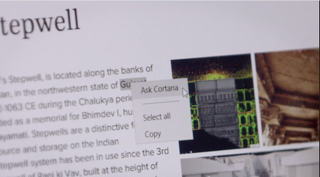
In its latest blog post, Microsoft also reiterated some of Project Spartan's most unique features, such as Cortana integration. Cortana will only be available in the U.S. initially, but Microsoft promised support for other locations later on.
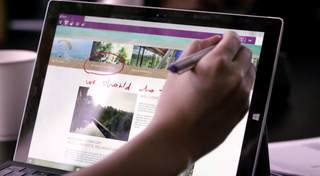
The new browser will also support inking and sharing "web notes," but this will only work if you have a notebook or tablet that comes with a touchscreen and a stylus.
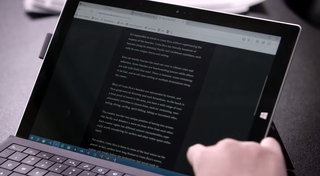
Project Spartan will also introduce the Reading List and Reading View features to provide distraction-free (and likely ad-free) reading. The Reading View is a feature that has been available for some time in the Safari browser, as well.
So far, Microsoft hasn't offered too many details about the security of its new browser, nor whether it will have a sandbox as strong as Chrome's. The company also hasn't talked about what new security features or cryptographic protocols and algorithms it will support in the new browser.
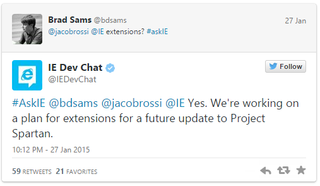
Although Microsoft confirmed a few months ago that there will be extension support in Project Spartan, the company hasn't talked much about it since then. With only a few months to go until Microsoft will launch Windows 10 along with the Project Spartan, the company is only now starting to talk about some of its technical details. This implies the browser is not quite finished yet, and it may have to be rushed to match the Windows 10 release. Hopefully, though, there aren't major parts of it that need to be added in the next few months.
Update, 3/31/15, 12:15 pm PST: An earlier version of this article stated that IE11 will feature both the old Trident and the new EdgeHTML rendering engines. Microsoft contacted us to say that Internet Explorer 11 will only feature the Trident engine for compatibility purposes. We have amended the article to reflect this new information.
Follow us @tomshardware, on Facebook and on Google+.
-
kawininjazx To be fair, chrome is on a ton of android devices, definitely raises the percentages. Chrome is also installed by accident by a lot of people just looking to download adobe reader.Reply -
childofthekorn Well apparently my companies enterprise level applications suck cause they're not even compatible with IE 10 or 11. Typically gotta go with 9 or below, compatibility view don't work for squat.Reply -
ahnilated Well I for one won't be using Spartan because I won't use Windows 8 or 10. I have seen them both and think they are horrible, Both in looks and useability.Reply -
rluker5 ReplyWell I for one won't be using Spartan because I won't use Windows 8 or 10. I have seen them both and think they are horrible, Both in looks and useability.
Good luck with that. You'll begrudgingly have to learn it sometime.
-
ahnilated Reply15587404 said:Well I for one won't be using Spartan because I won't use Windows 8 or 10. I have seen them both and think they are horrible, Both in looks and useability.
Good luck with that. You'll begrudgingly have to learn it sometime.
I already know it, that doesn't mean I will be using it. I will keep my Windows 7 and Linux setups. -
closetwhisperer1 Microsoft sure likes sticking with Halo themed names and stuff. I'm really not suprised its called spartan.Reply -
uglyduckling81 ReplyWell I for one won't be using Spartan because I won't use Windows 8 or 10. I have seen them both and think they are horrible, Both in looks and useability.
I use Win 8.1 and have used Win 8 since Stardock released Start8. It's just better than 7 in every way. I haven't seen a Metro Window except when I installed Win 8 before I was able to install the first program which was Start 8. Using Win 7 now is just ridiculous, like the old crowd claiming they would never use 7 and stay with XP which was just horrible comparatively. Always makes me laugh reading how people get stuck in the mud with old OS's. Of course I never move across immediately but keep my eye on when the worst of the problems have been sorted. -
falchard ReplyMicrosoft sure likes sticking with Halo themed names and stuff. I'm really not suprised its called spartan.
I was hoping they called it Spartan because its bare bones. Still its always a good idea for Microsoft to name things after things from Halo. Halo is very popular and is one of the reasons the Xbox didn't flop. After all what voice assistant would we rather use, Cortana, Siri, or Google Whatever?
Most Popular


